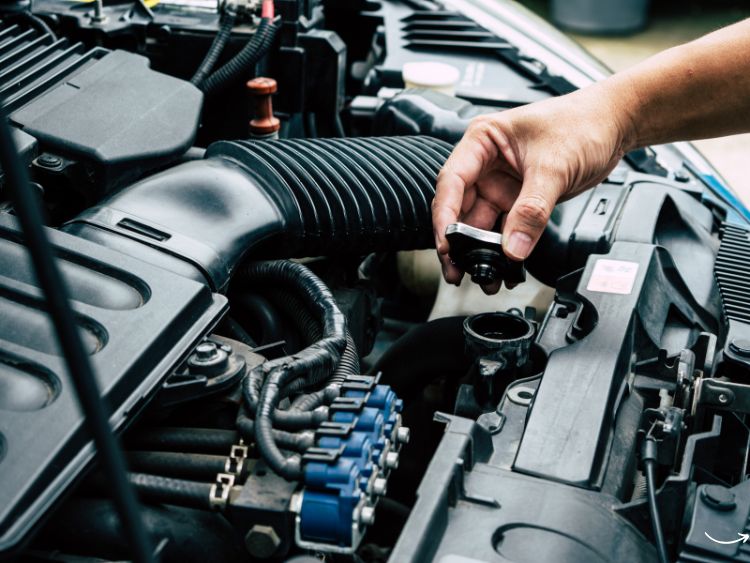Ever felt stranded because your car just wouldn’t start? Ugh, we’ve all been there. The culprit? Most likely, a dead battery. Automotive replacement batteries are the unsung heroes of the road, keeping vehicles running smoothly day after day. Whether you’re a first-time car owner or a seasoned driver, understanding the ins and outs of replacement batteries can save you a ton of headaches—not to mention money.
Let’s dive into this guide to learn everything about choosing, maintaining, and replacing automotive batteries.
What Are Automotive Replacement Batteries?
In simple terms, automotive replacement batteries are rechargeable power sources designed to start your car and keep its electrical systems running. These batteries are tailored to meet the specific energy requirements of your vehicle, from igniting the engine to powering lights, wipers, and infotainment systems.
Types of Automotive Batteries
Here’s a quick rundown of the most common types:
- Lead-Acid Batteries: Affordable and reliable, these are the go-to for many drivers.
- Absorbent Glass Mat (AGM) Batteries: Deliver high performance and are ideal for vehicles with advanced electronics.
- Lithium-Ion Batteries: Lightweight and efficient, perfect for electric and hybrid cars.
Signs You Need a Battery Replacement
Not sure if your car battery is on its last legs? Here are some telltale signs:
- Slow Engine Crank: If your car struggles to start, your battery might be weakening.
- Dashboard Warning Light: A battery-shaped light on the dashboard often signals trouble.
- Swollen Battery Case: Heat damage can cause the battery casing to swell.
- Frequent Jump-Starts: If you’re constantly jump-starting your car, it’s time for a new battery.
- Age: Batteries typically last 3-5 years.
How to Choose the Right Automotive Replacement Battery
Choosing the perfect replacement battery can feel overwhelming, but it doesn’t have to be. Here’s what to consider:
1. Battery Size
Your vehicle’s battery tray dictates the size you need. Check your car manual for exact dimensions.
2. Cold Cranking Amps (CCA)
Live in a cold climate? Opt for a battery with a high CCA rating to ensure reliable starts during freezing weather.
3. Reserve Capacity (RC)
RC measures how long the battery can supply power when the engine isn’t running. A higher RC is better for vehicles with advanced electronics.
4. Brand & Warranty
Stick to reputable brands and look for warranties of at least 3 years for peace of mind.
5. Maintenance Needs
Some batteries are maintenance-free, while others require regular checks. Choose based on your preference.
Prolonging the Life of Your Car Battery
A little TLC goes a long way in extending the life of your automotive replacement battery.
- Keep It Clean: Remove dirt and corrosion from battery terminals.
- Avoid Short Trips: Frequent short drives prevent the battery from fully charging.
- Test Regularly: Use a multimeter to check the voltage periodically.
- Turn Off Electronics: Always switch off lights and accessories when the engine isn’t running.
Installing a New Battery
Replacing your car battery isn’t rocket science. Follow these steps to get the job done safely:
- Gather Tools: Wrenches, gloves, and safety goggles are essential.
- Disconnect the Old Battery: Start by removing the negative terminal, then the positive.
- Remove the Old Battery: Carefully lift it out, avoiding any spills.
- Install the New Battery: Position it correctly and secure it in place.
- Reconnect Terminals: Attach the positive terminal first, then the negative.
Frequently Asked Questions
1. How long does an automotive replacement battery last?
Typically, a car battery lasts between 3-5 years. However, factors like climate, driving habits, and maintenance can affect its lifespan.
2. Can I replace my car battery myself?
Absolutely! With the right tools and safety precautions, most car owners can replace their battery at home.
3. What happens if I use the wrong battery size?
Using an incorrectly sized battery can lead to poor performance or even damage your vehicle’s electrical system.
4. How do I dispose of an old car battery?
Most auto shops and recycling centers accept old batteries. Proper disposal prevents environmental harm.
5. Why is my new battery draining so quickly?
Frequent drains might point to issues like faulty alternators, parasitic drains, or excessive use of electronics.
Conclusion
Automotive replacement batteries are the heart of your car’s electrical system, and knowing how to choose and maintain one can save you from countless breakdowns. From understanding different battery types to prolonging their lifespan, you’re now armed with the knowledge to keep your vehicle running smoothly.
When it’s time for a replacement, make sure you’re investing in the right battery to fit your needs and driving habits. After all, a little proactive care goes a long way.
Authoritative Sources
- Battery Council International – https://batterycouncil.org
- U.S. Department of Energy – https://energy.gov
- Consumer Reports on Car Batteries – https://consumerreports.org/batteries





